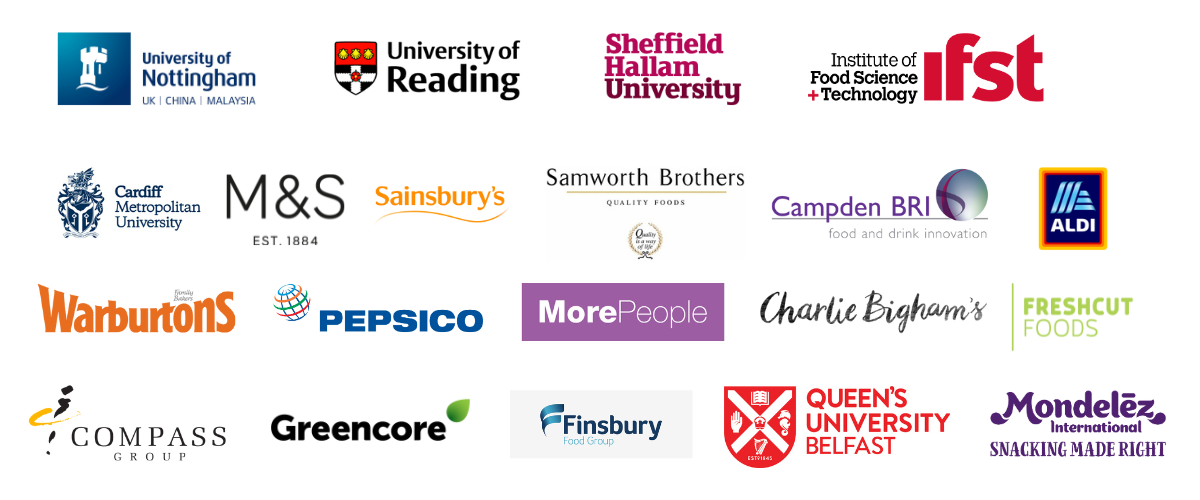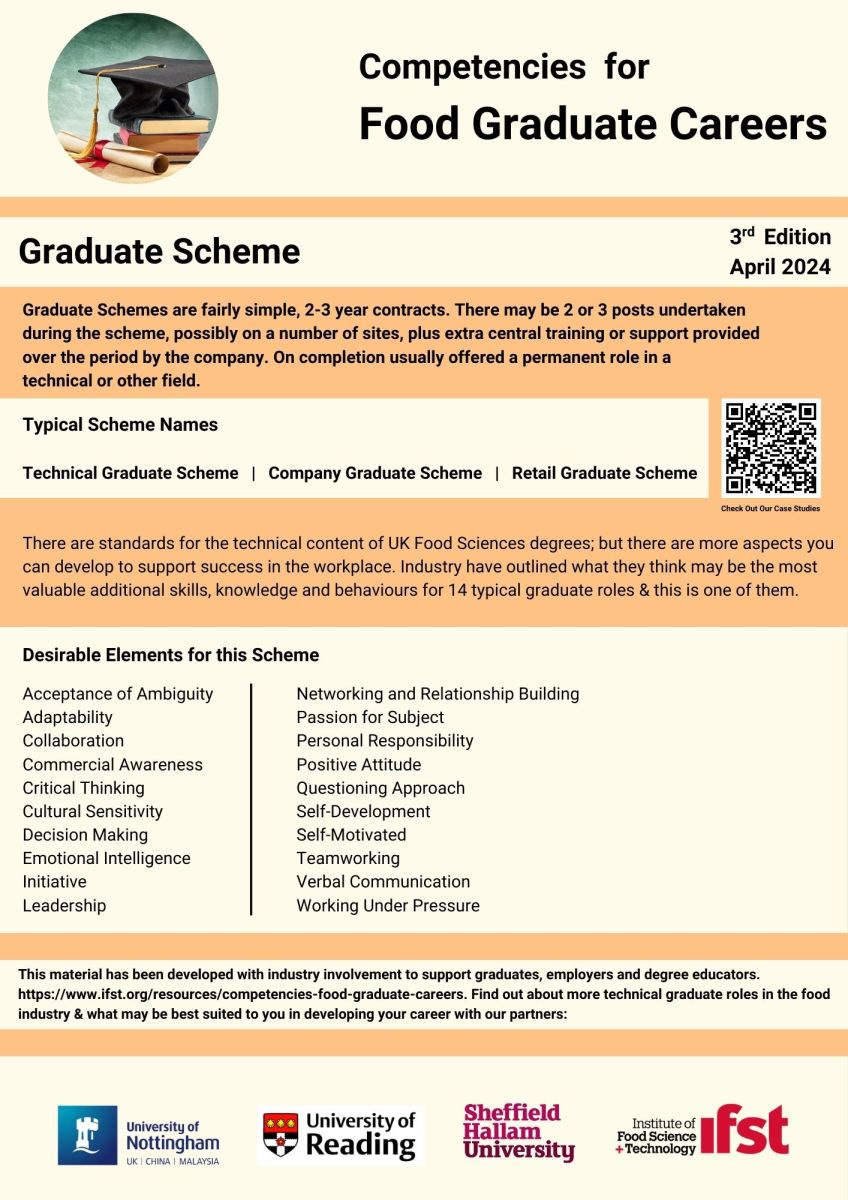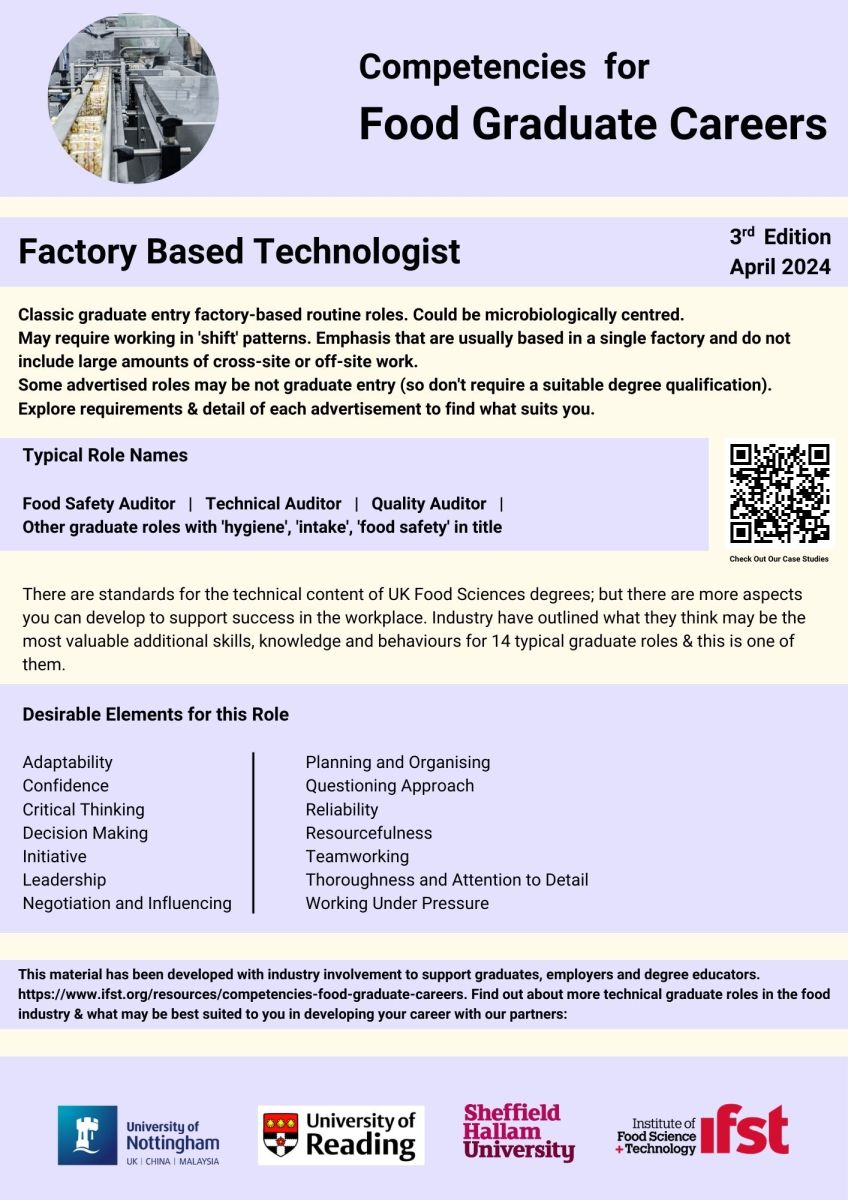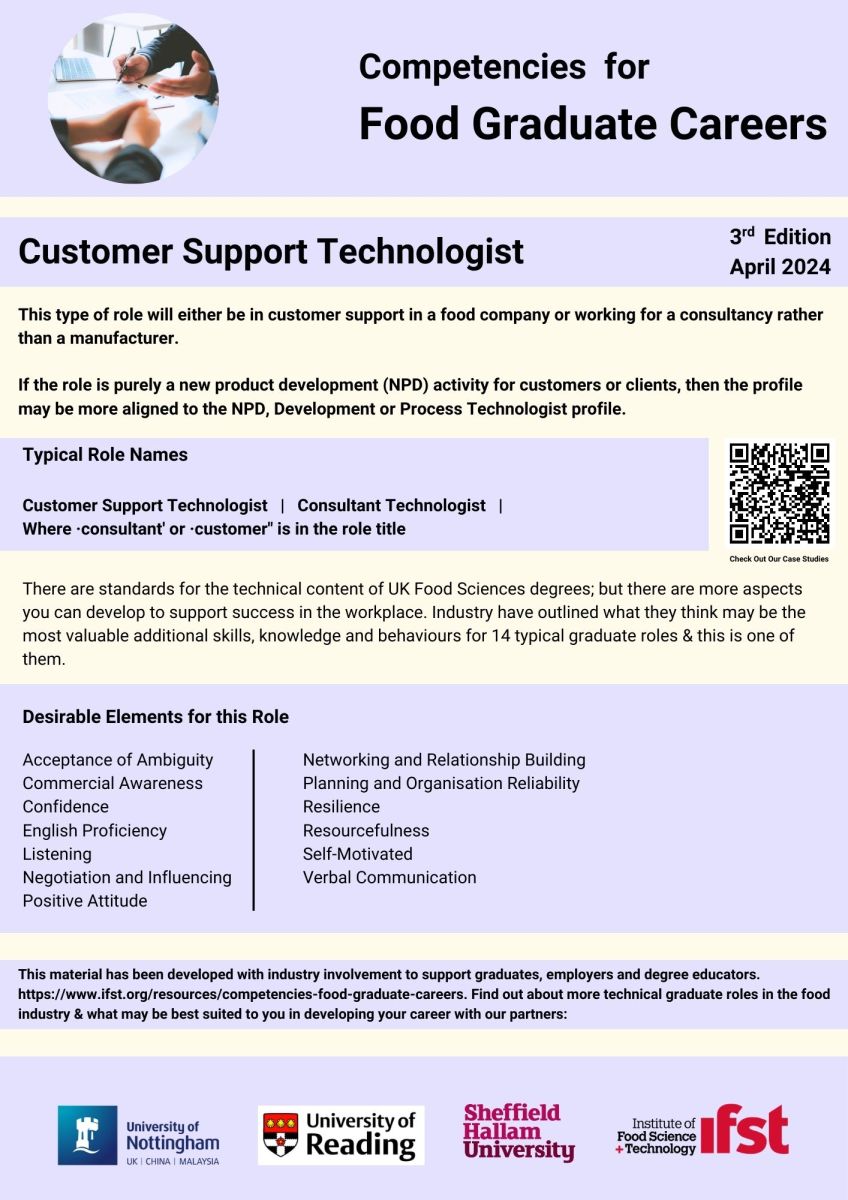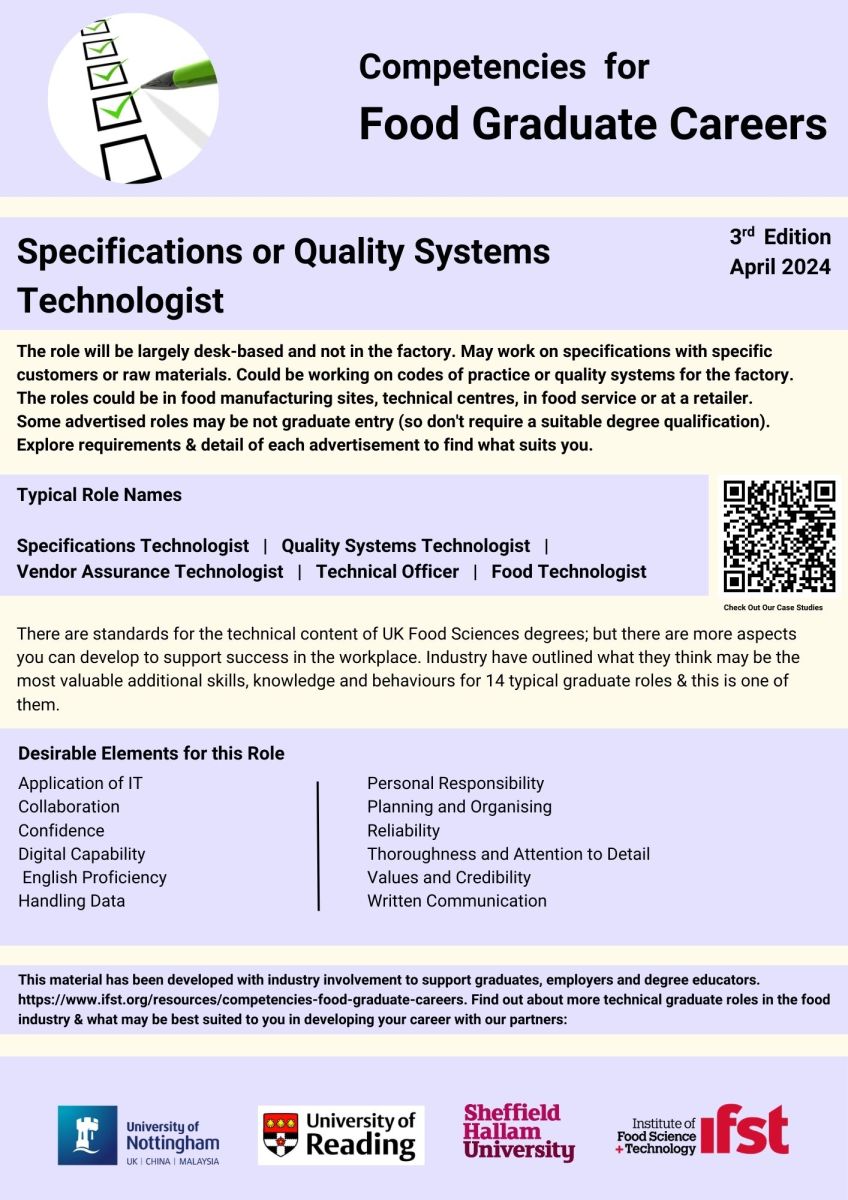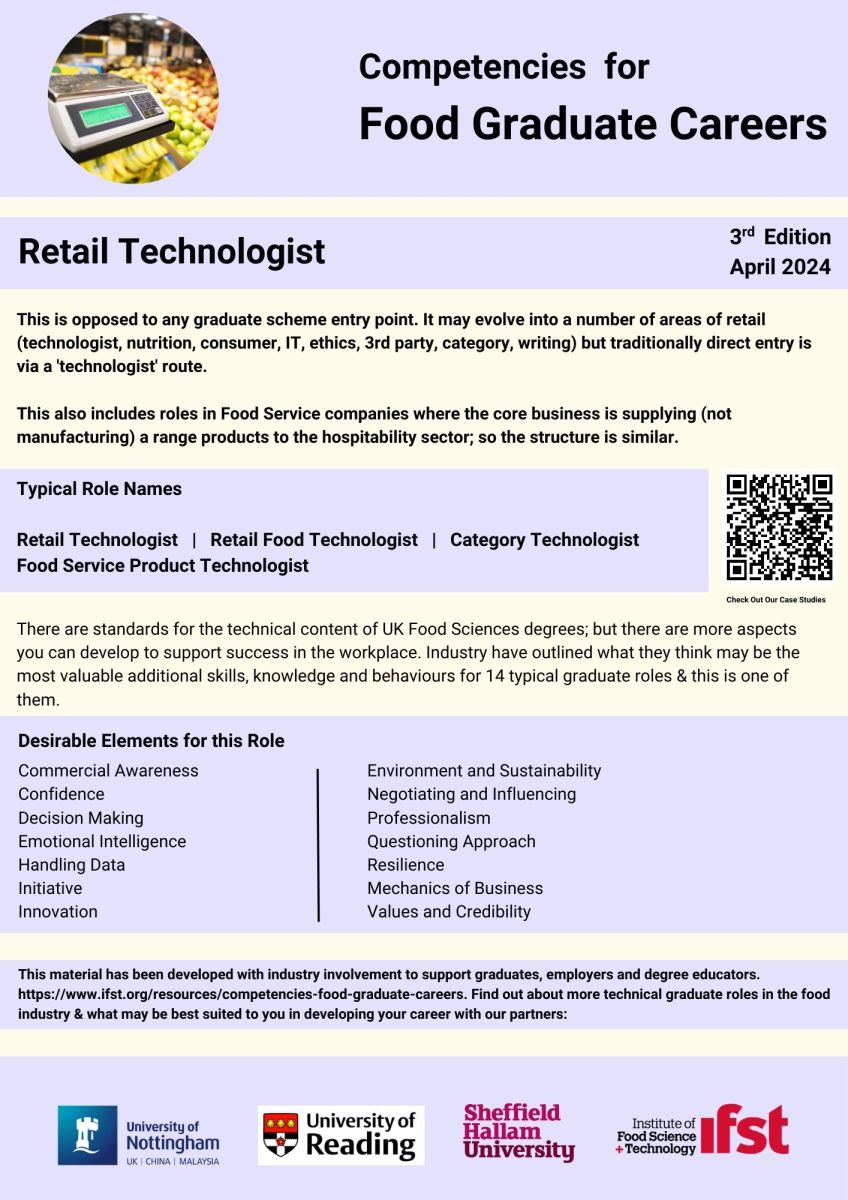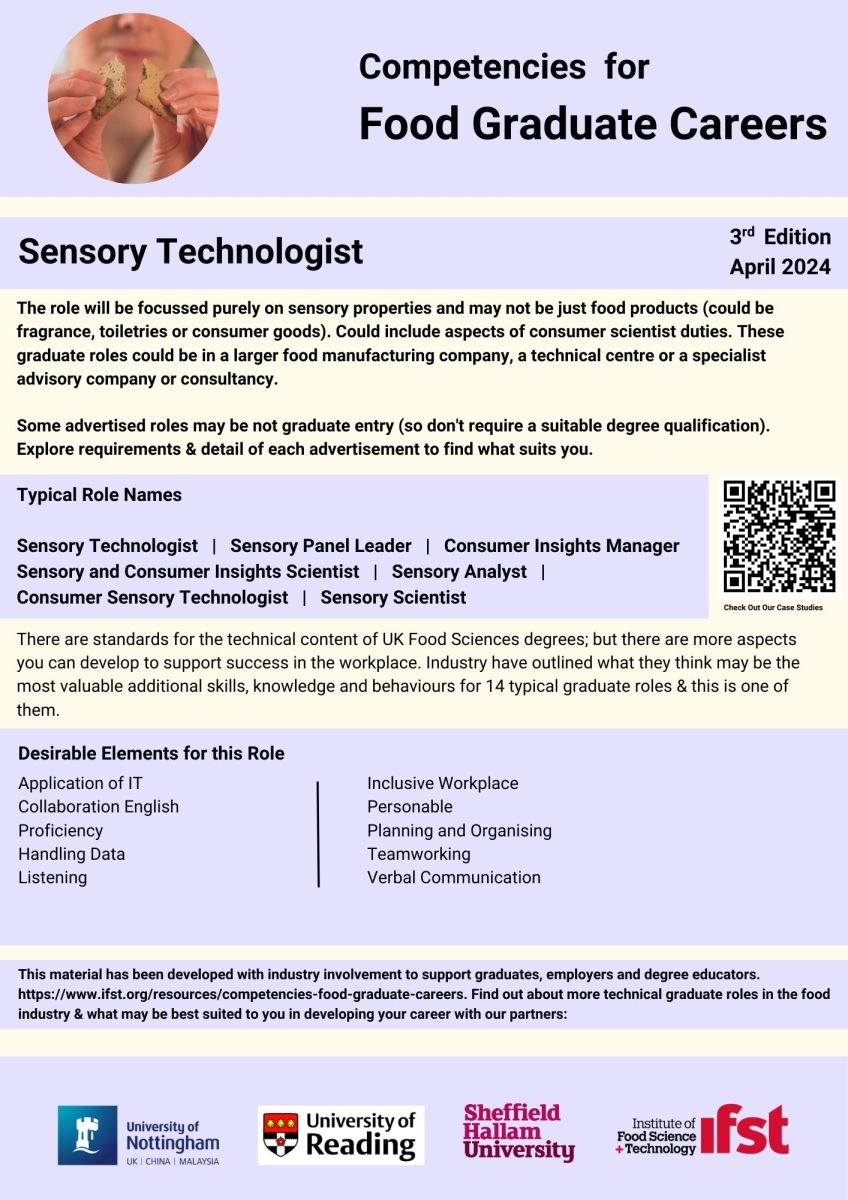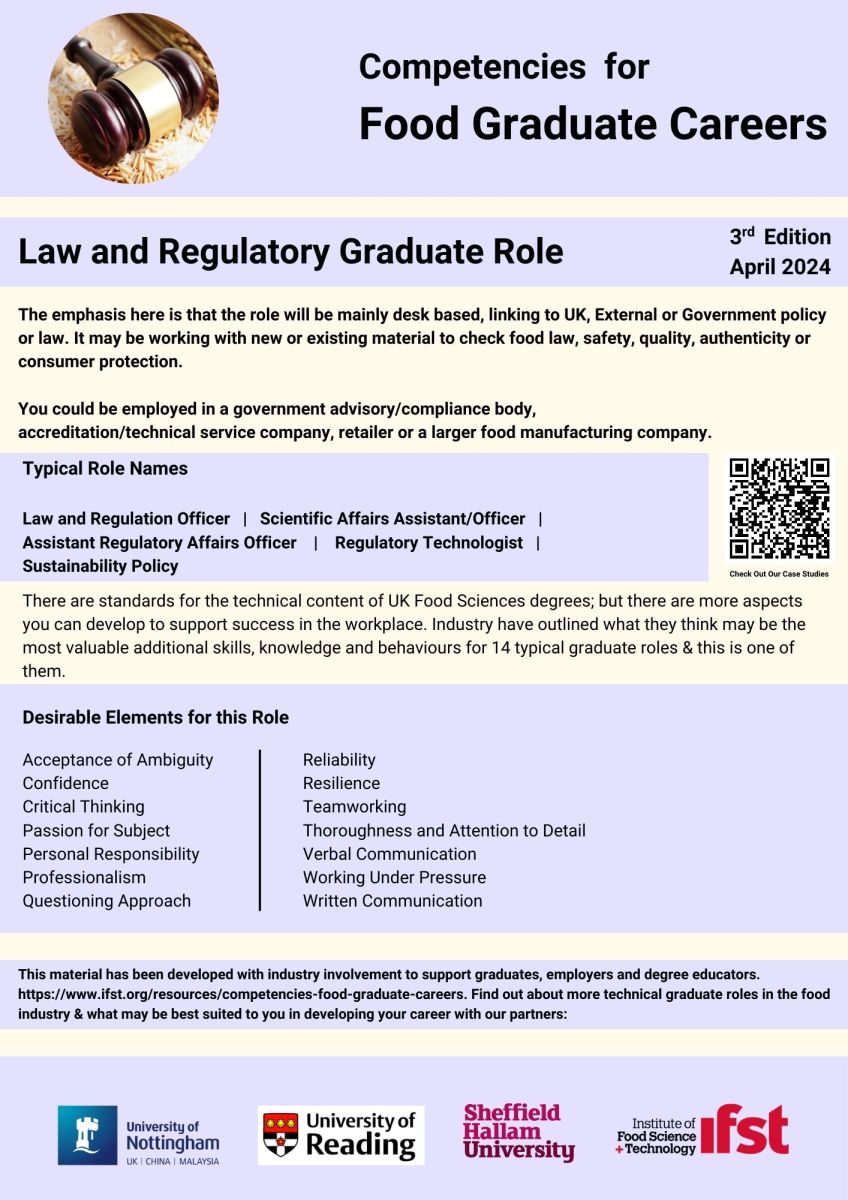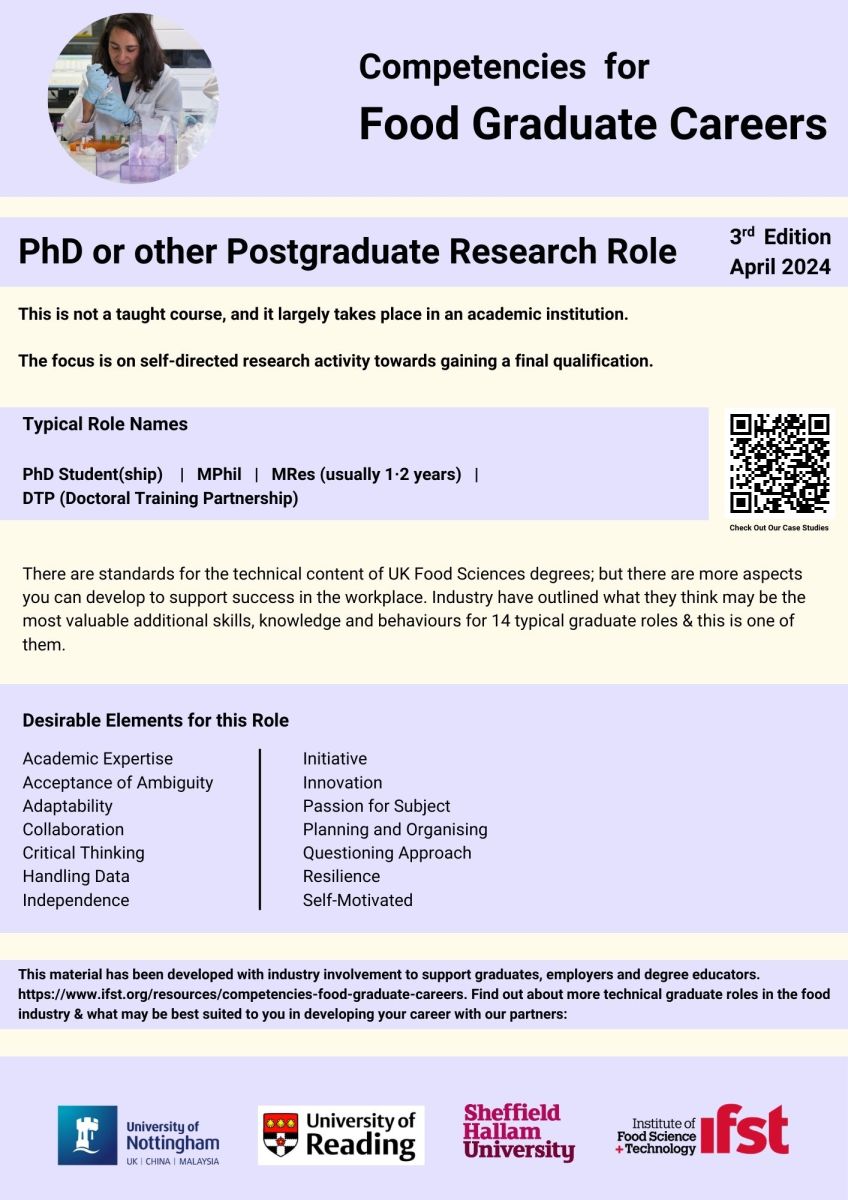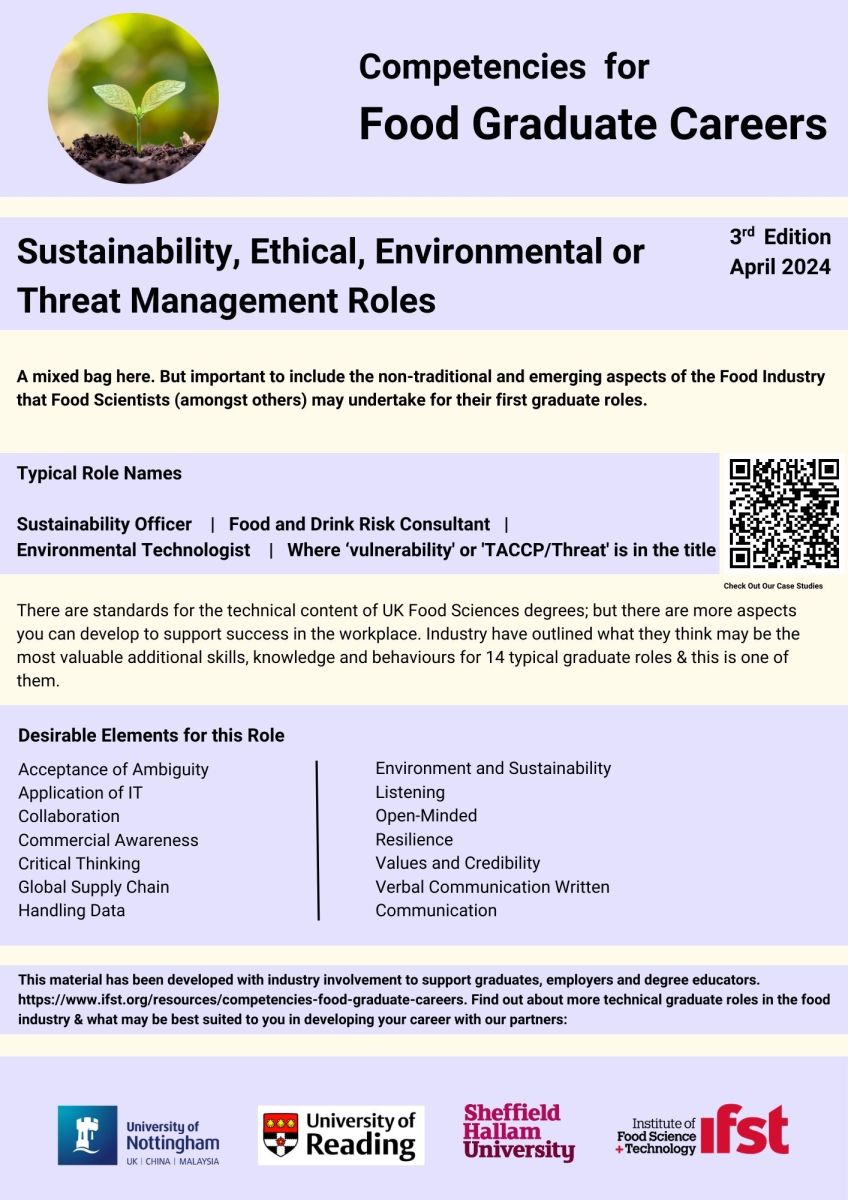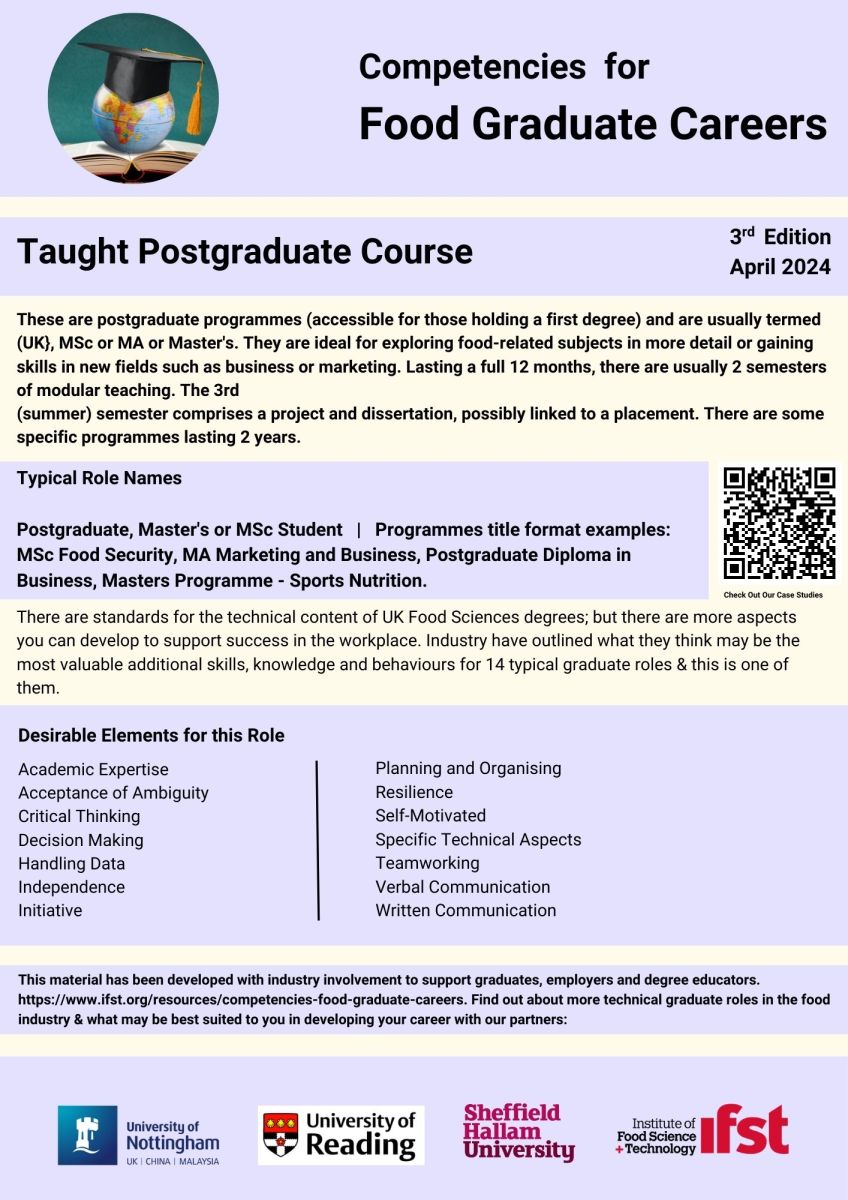A degree in food science and technology can open up so many doors. Find out more about the wide variety of career options available to food science and food technology graduates.
This invaluable career resource has inspired graduates since its inception in 2018. A refreshed look and semi-regular updates will ensure it continues to be a useful development tool for current students, graduates and anyone looking to explore the range of opportunities for graduate food scientists.
‘Competencies for Food Graduate Careers’, was developed initially by Emma Weston at University of Nottingham who’s research project explored what makes a ‘great graduate for the food industry’ and how educational providers can optimise the courses to facilitate this. Collaborating with University of Reading and Sheffield Hallam University, the original work was refreshed for relaunch in 2024.
This page and resource have been developed in collaboration with IFST and representatives from across the food system, from retailers to higher education institutions.
The core document comprises of a list of elements that provide a consistent and relevant set of behaviours, knowledge and skills that may be desirable in a food science graduate. A list of 14 role types and associated definitions were then reviewed and ratified by the industry stakeholder group. Responding to student feedback about what may be useful to them during the refresh, there are additional case studies from recent graduates providing real-life context to the roles. These documents are downloadable below.
This simple interactive tool can help students identify and pursue careers suited to their strengths; help employers with recruitment and selection; and help educators ensure courses reflect the needs of the evolving food system.
For more information about the project, please contact one of the project partners
-
Emma Weston emma.weston@nottingham.ac.uk
-
Maria Jose Oruna-Concha m.j.oruna-concha@reading.ac.uk
-
Caroline Millman c.e.millman@shu.ac.uk
Over 200 responses were obtained from the wider food and drink industry in the initial survey, which was further refreshed in 2022/23 in conjunction with an industry stakeholder group. Key stakeholders involved in the project initially and during the refresh included:
